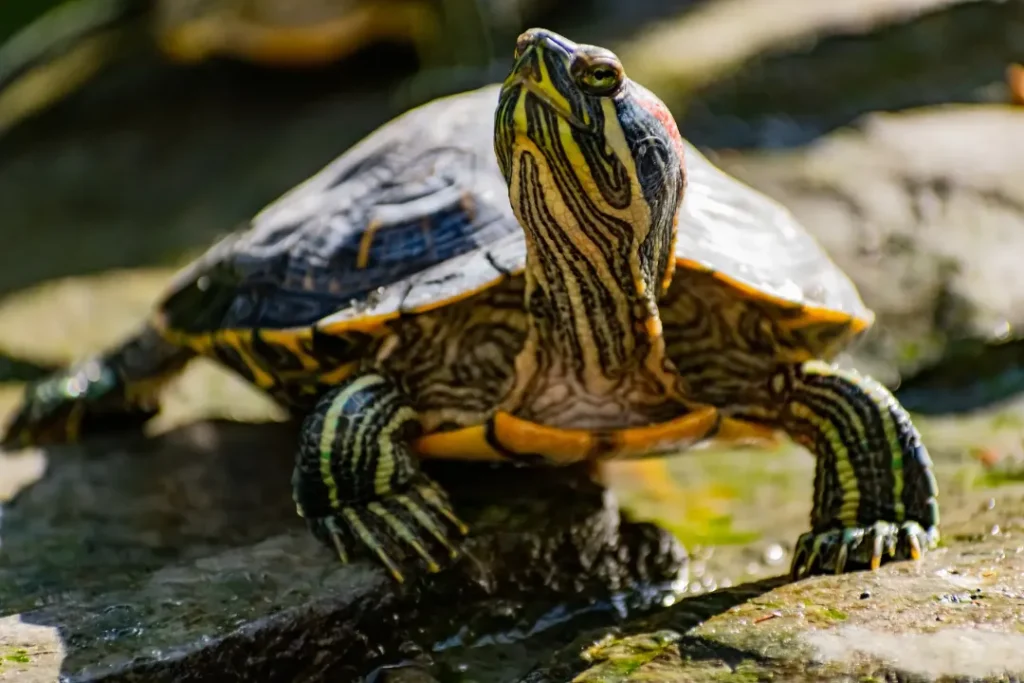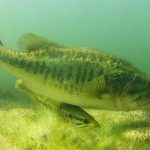When considering the inhabitants of your pond, turtles can be a fascinating addition. These reptiles are known for their captivating behavior and can contribute to the overall ecosystem of the pond. In this article, we will explore the benefits of having turtles in ponds and provide insights into their care and impact on the aquatic environment.
Benefits of Having Turtles in Ponds
Turtles play a vital role in maintaining the balance of pond ecosystems. Here are some of the benefits they offer:
1. Natural Pest Control
Turtles are omnivorous and consume a variety of organisms, including insects, small fish, and algae. By doing so, they help control the population of insects and other small creatures that may disrupt the pond’s ecosystem. This natural pest control can contribute to a healthier and more balanced pond environment.
2. Algae Management
Excessive algae growth can be a common issue in ponds, leading to imbalances in water quality and aesthetics. Turtles can aid in managing algae levels by consuming it as part of their diet. Their grazing behavior can help prevent the overgrowth of algae, thus contributing to clearer and healthier water.
3. Biological Diversity
Introducing turtles to a pond can enhance its biological diversity. These reptiles coexist with other aquatic species and contribute to the overall richness of the ecosystem. Their presence can create a more dynamic and diverse environment, which is beneficial for the pond’s health and sustainability.
4. Educational Value
For pond owners, having turtles can offer educational opportunities, especially for children. Observing the behavior and life cycle of turtles can provide valuable insights into the natural world, fostering a deeper appreciation for wildlife and conservation efforts. Turtles can serve as ambassadors for environmental education and awareness.
5. Aesthetic Appeal
From an aesthetic standpoint, turtles can add visual interest to ponds. Their unique appearance and graceful movements can enhance the overall appeal of the water feature, creating a more captivating and naturalistic environment for observers and visitors.

Credit: www.youtube.com

Credit: charlottebackyardponds.com
Caring for Turtles in Ponds
While turtles can bring numerous benefits to ponds, it’s essential to ensure proper care and management. Here are some considerations for maintaining a healthy and sustainable habitat for pond turtles:
1. Habitat Requirements
Turtles require a suitable habitat within the pond, including basking areas, submerged structures, and ample space for swimming. Providing a diverse and naturalistic environment will support their well-being and natural behaviors. Additionally, ensuring appropriate water depth and quality is crucial for their health.
2. Feeding And Nutrition
Understanding the dietary needs of pond turtles is essential for their overall health. Offering a balanced diet that includes commercial turtle pellets, live prey, and vegetation can help meet their nutritional requirements. It’s important to provide varied food options to ensure proper nutrition and prevent deficiencies.
3. Environmental Enrichment
Enriching the pond environment with natural elements such as plants, rocks, and driftwood can provide turtles with opportunities for exploration and stimulation. These enrichment activities mimic their natural habitat and promote physical and mental well-being. Creating a diverse and stimulating environment can contribute to the overall welfare of pond turtles.
4. Monitoring And Health Care
Regular monitoring of the turtles’ health and behavior is essential for early detection of any potential issues. Establishing a relationship with a veterinarian experienced in reptile care is advisable, as they can provide guidance on health assessments, preventive care, and medical treatment if needed. Proactive health management is crucial for ensuring the long-term well-being of pond turtles.
5. Legal And Ethical Considerations
Prior to introducing turtles to a pond, it’s important to be aware of local regulations and ethical considerations regarding wildlife management. Some species of turtles may be protected or require permits for ownership, so it’s crucial to research and adhere to legal requirements. Respecting ethical standards for wildlife care and conservation is fundamental when incorporating turtles into pond environments.
Impact on the Aquatic Environment
Introducing turtles to ponds can have both positive and nuanced effects on the aquatic environment. Here are some key considerations regarding their impact:
1. Ecological Balance
Turtles contribute to the ecological balance of ponds by participating in the food web and influencing the population dynamics of other organisms. Their role as predators and consumers can help regulate the abundance of certain species, contributing to a more balanced and sustainable ecosystem.
2. Nutrient Cycling
As part of the natural nutrient cycling process, turtles excrete waste that can serve as a source of nutrients for aquatic plants and microorganisms. Their presence contributes to the overall nutrient dynamics of the pond, influencing the availability and distribution of essential elements within the ecosystem.
3. Potential Challenges
While turtles offer various benefits, their presence can also pose challenges, particularly in heavily managed or ornamental ponds. They may disturb aquatic plants, alter substrate composition, and compete with other species for resources. Understanding the potential challenges associated with introducing turtles is essential for making informed decisions about their suitability for a particular pond environment.
Conclusion
In conclusion, the presence of turtles in ponds can offer numerous benefits, ranging from natural pest control and algae management to educational value and aesthetic appeal. However, responsible care and management are crucial for ensuring the well-being of pond turtles and minimizing potential environmental impacts. By understanding the considerations involved in keeping turtles in ponds and appreciating their ecological role, pond owners can make informed decisions about incorporating these captivating reptiles into their aquatic habitats.
Ultimately, the coexistence of turtles and ponds can create a harmonious and dynamic ecosystem, enriching the natural beauty and ecological diversity of these aquatic environments.





